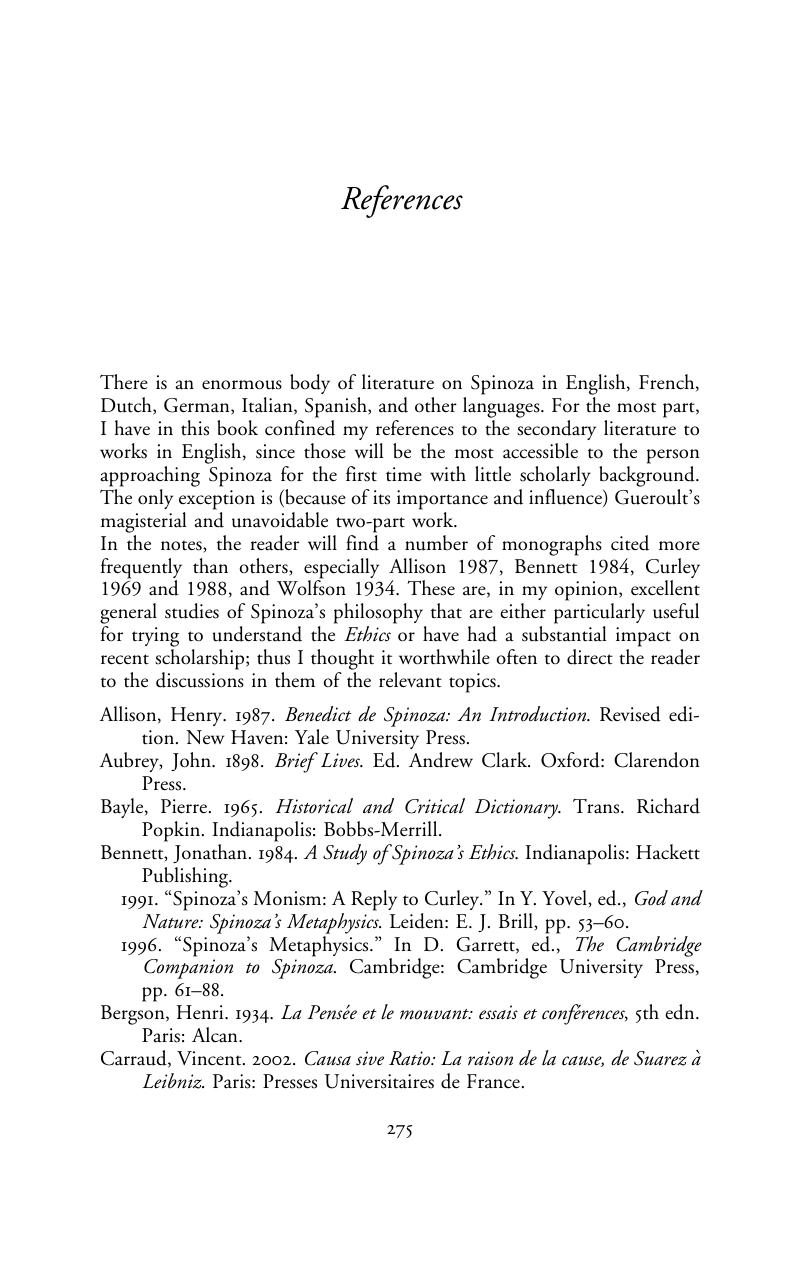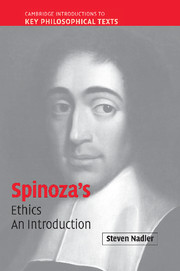Book contents
- Frontmatter
- Contents
- Preface
- Acknowledgements
- List of abbreviations
- 1 Spinoza's life and works
- 2 The geometric method
- 3 On God: substance
- 4 On God: necessity and determinism
- 5 The human being
- 6 Knowledge and will
- 7 The passions
- 8 Virtue and “the free man”
- 9 Eternity and blessedness
- References
- Index
- References
References
Published online by Cambridge University Press: 05 June 2012
- Frontmatter
- Contents
- Preface
- Acknowledgements
- List of abbreviations
- 1 Spinoza's life and works
- 2 The geometric method
- 3 On God: substance
- 4 On God: necessity and determinism
- 5 The human being
- 6 Knowledge and will
- 7 The passions
- 8 Virtue and “the free man”
- 9 Eternity and blessedness
- References
- Index
- References
Summary

- Type
- Chapter
- Information
- Spinoza's 'Ethics'An Introduction, pp. 275 - 278Publisher: Cambridge University PressPrint publication year: 2006



